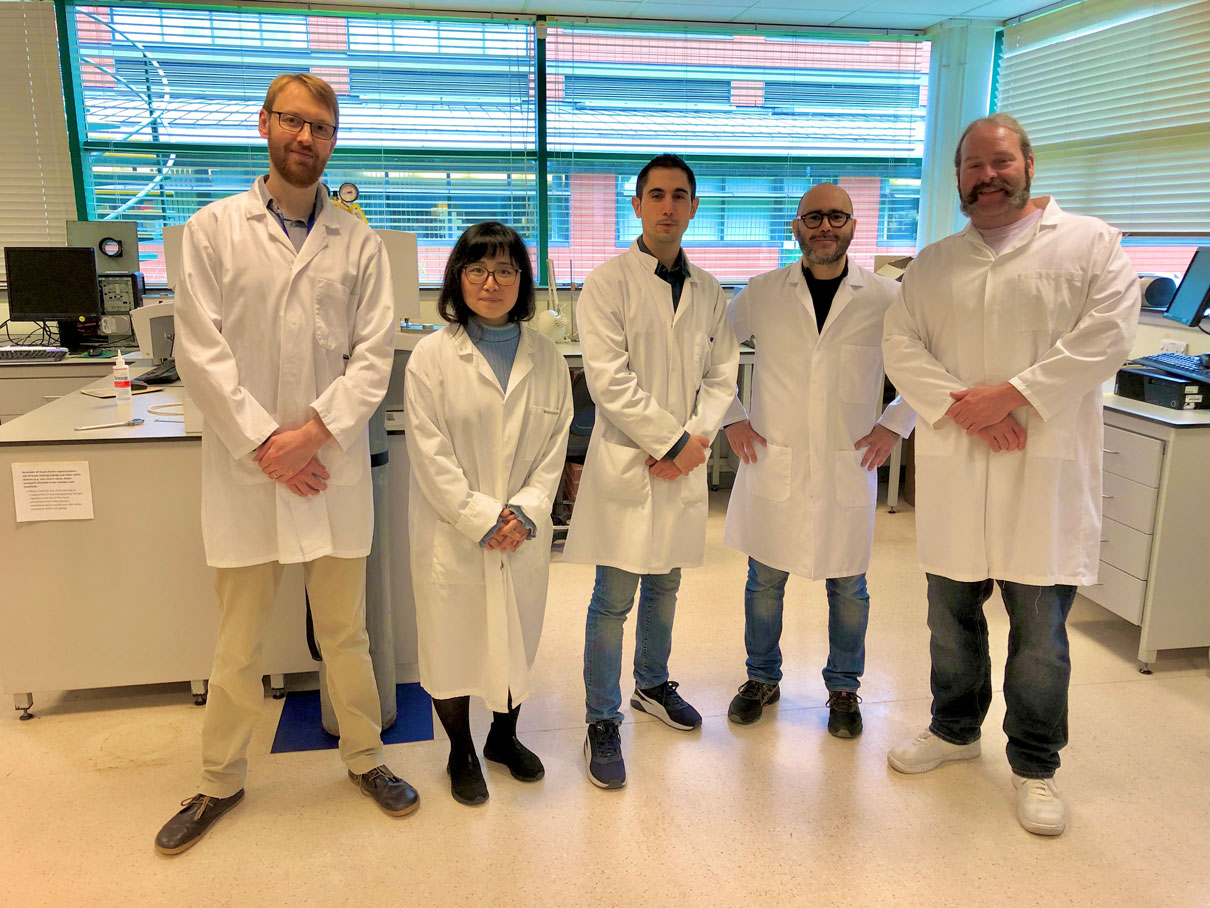University of Nottingham Secures Funding Boost for Innovative ‘Cheese from Peas’ Project
Alternative protein research exploring using peas to make sustainable plant-based cheese has received funding from Innovate UK to develop commercial processes for new products.
‘Cheese from Peas’ is a new product being developed by researchers from the University of Nottingham and spin-out company The Good Pulse Company who are developing techniques to turn yellow peas grown in the UK into a sustainable plant-based cheese.
This latest funding of over £300,000 from Innovate UK adds to over £370k in investment from UK’s leading scientific research organisation Rothamsted Research through their programme SHAKE Climate Change, and from leading food technology venture capital investors Big Idea Ventures. The grant has allowed the company to hire researchers from the university and also bring further expertise from other academics working on adjacent research areas.
Dr Vincenzo di Bari, Assistant Professor in Food Structure and Processing at the University of Nottingham has been leading research that is looking for ways to develop a new generation of functional, minimally processed ingredients from legumes for applications such as plant-based cheese that is healthier and higher in proteins than existing cheese alternatives in the market.
We are focused on creating a product that is tasty, has excellent nutritional value and that is also sustainable. From research we previously carried out we have identified yellow peas as an ideal ingredient to achieve this because of its composition and availability in the UK. This is a key step towards our goal to deliver healthy products manufactured using sustainable UK grown crop. We are now focused on developing technologies to be able to process the peas at a commercial level with minimal processing or extra ingredients.
Yellow peas are a niche crop in the UK and are traditionally used for soups, stews and casseroles. They contain high-quality protein and are a good source of iron. Pea protein also contain essential amino acids that your body cannot create and must get from food.

The Good Pulse Company has already developed over 100 prototypes of plant-based cheese made from pulses using their proprietary technology and processes, as well as processes for making naturally gluten-free baked goods from pulses that are high in proteins and great in taste.
In addition to the successful funding, the company is now part of the prestigious EIT Food Seedbed programme and have also achieved key strategic milestones such as securing a major collaboration agreement with one of the largest dairy cheese companies in Europe to co-develop prototypes of cheese using their functional ingredients from pulses and unique processes leading to large scale pilot production trials, filing a first patent in the USA, and shown potential scalability of the technology and processes to other pulses and food applications.
Vegan cheeses are often ultra-processed in nature with poor nutritional value and mostly made from coconut oil, modified starches, and artificial additives. We are addressing this with new types of ingredients blends from pulses that are tailored specifically for making plant-based cheese. We also aim to look beyond just nutrition and to help strengthen local supply chain of pulses and have a positive social impact on farming communities.
The Business School at the University of Nottingham has also been involved in research projects to support the business development. Three MBA consultancy projects were completed in September 2023 that looked into existing markets of plant-based cheese and baked goods and the company has also employed candidates from the programme MSc Food Production Management as interns during the summer as well as sponsoring projects for this programme.
Dr di Bari adds: “Creating new food products is challenging and the market is hugely competitive but we believe these new cheese products made from our unique ingredients and technology are completely unique and will offer a tasty, sustainable alternative to what is currently available. With the backing of industry partners and this additional funding we can push the research further to have a commercial product within the next 12 months. For this, the company will open its next investment round in early January 2024”.

